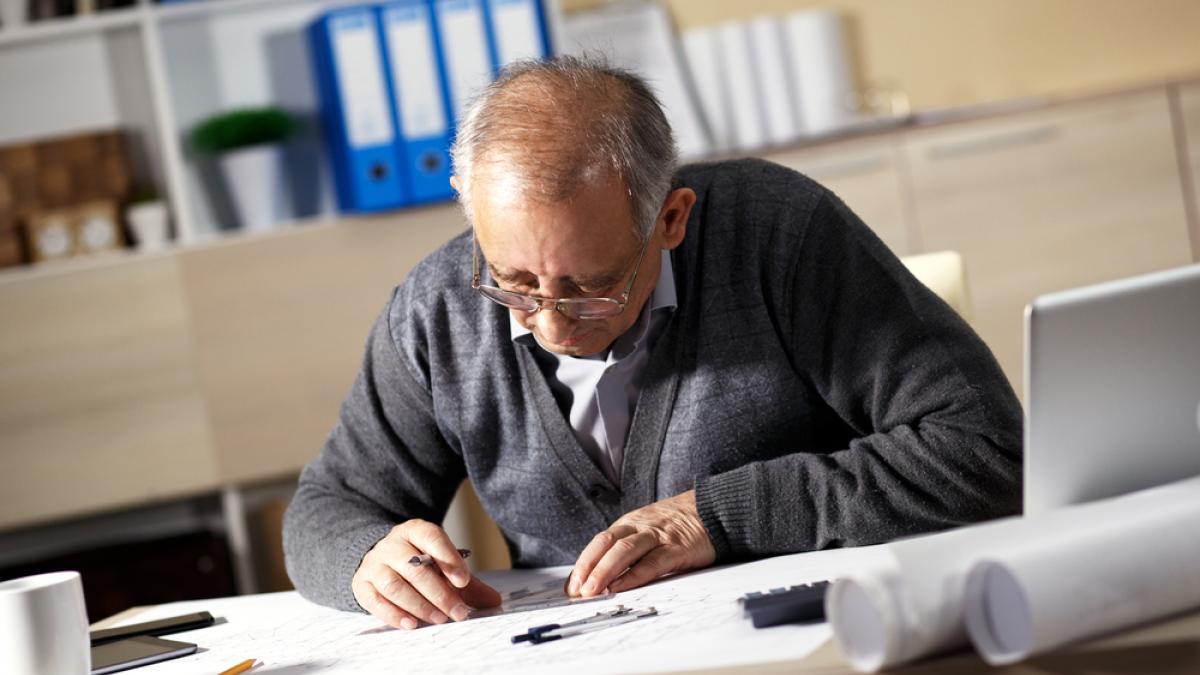As the years progress, more of us will continue working into our late 60s and beyond.

This is not only for economic reasons – the government is raising the age at which the state pension is paid, for example – but also because many older people who are able to work want to carry on doing so. Working helps older people stay physically and mentally active, offers a sense of value and achievement and is a good social outlet.
However, as we grow older we might find we have less energy or experience changes to the way our bodies function. This might mean working fewer hours or adapting the way that we work, but the more physically active we are, the fitter and healthier we stay. It is also possible to reverse some of the changes associated with ageing by taking up a healthy lifestyle.
Your employer's responsibilities
Research shows that employing older workers has many advantages for an organisation. Older employees tend to be more loyal and motivated, better at reasoning and deliberating, and more experienced and skilled at the job. They are also able to mentor younger staff and boost morale.
Employers have a duty to all their staff to:
- Provide a well-designed workplace
- Ensure a safe working environment that reduces the risks of injury and occupational disease
- Introduce healthy working practices; for example, regular work breaks, a good work/life balance and a system for reporting difficulties as they arise.
Managers should also be trained in age-related issues and in supporting older workers.
What you can do to help stay fit for work
- Ensure that your working environment and working practices are safe and ergonomically sound. Report any problems to your employer
- Take advantage of benefits such as an occupational health scheme that your employer might offer, including physiotherapy
- Have regular health checks – ask for these through your GP
- Take regular exercise. Activities such as walking, golf, dancing, swimming or cycling keep your joints and muscles strong and supple, benefit your heart, lungs and circulation, and help combat stress, anxiety and depression.
- Eat a nutritious diet, low in salt and saturated fat.
- Maintain a healthy weight and avoid obesity
- Don't smoke – if you need help with giving up, ask your GP
- Don't exceed the recommended limits on alcohol consumption
- Keep in touch with friends and maintain an active social life
- Get a good night's sleep
Preventing strain and injury at work
Whatever type of job you do – whether you sit at a desk, are on your feet or drive a vehicle, for example – you need to protect your joints, muscles and ligaments. This is important at any age but particularly so for older people when muscles and bones are more prone to injury.
Lower back pain and what is known as repetitive strain injury that affects the arms, wrists, fingers, neck or shoulders, can be both disabling and hard to resolve. By following some straightforward rules, such as adopting a good posture, and doing some simple exercises, you can prevent problems arising and help yourself to stay fit and mobile.
If your job involves sitting for long periods
- Rotate your tasks so that you are not spending too much time in one position; for example, switch between the phone and the computer or, even better, go and speak to someone face to face
- Try to get out of the building for some fresh air every day
- Try to take a short break for a few minutes each hour
- Drink plenty of water
- Ensure your workstation is set up correctly; for example, that your chair is the right height for the height of your desk or computer; the backrest is in the correct position and the mouse within easy reach. For more details see our Fit for Work leaflet.
If your job involves physical activity
The good news is that bending, lifting, stretching and pushing are all good for your health and overall fitness. Just doing your job can help you meet the recommended target for exercise. Physiotherapists suggest you take 30 minutes of physical activity on at least five days a week. This can be broken down into 10 or 15 minute chunks, if this suits you better.
Here are some key point to consider:
- Warm up a little to prepare your body using small movements or gentle stretches. Aim to do this at the beginning of the day and after rest periods
- Use a good technique. Ask for training for the tasks you do
- Use any tools or equipment correctly to avoid aches and pains
- Consider seeking advice from a physiotherapist about specific exercises to help you develop the strength to do your job safely and effectively
- Have a good posture: stand upright, maintain the natural curves of your back, keep your arms close to your body and your feet hip distance apart
- Follow your employer’s health and safety procedures
- Eat well and drink enough fluids
- Report any health problems to your employer
How can physiotherapy help?
Physiotherapists are the key health professionals to assess and treat you if you should experience physical problems and also to give you advice to prevent problems from developing.
These easy desk-based exercises, for example, have been devised by specialist physiotherapists to relieve the aches and pains associated with sitting for long periods. They are particularly suitable for older people and are designed to fit into your working day.
If you are recovering from illness or injury that has caused you to take sickness absence, a physiotherapist can work with you on a treatment or rehabilitation plan to help you back to fitness and health, and to support you back into employment.
If you are experiencing health problems that seem to be worse at work, a physiotherapist can also help. They will assess your condition and devise a programme to tackle the causes, including any factors at work or in your lifestyle generally that are contributing to the problem.

Produced in association with the Association of Chartered Physiotherapists in Occupational Health and Ergonomics (ACPOHE)

